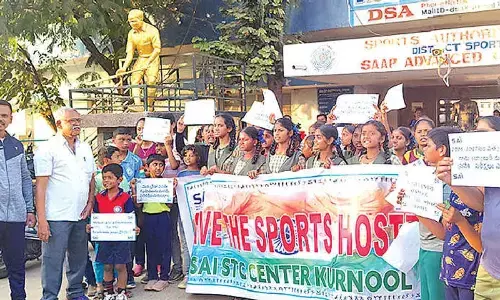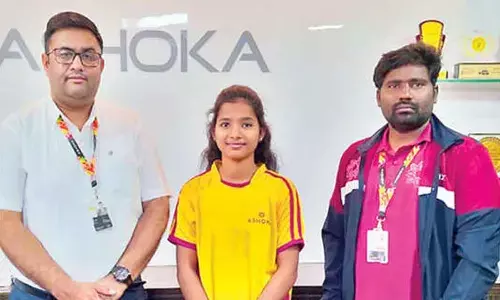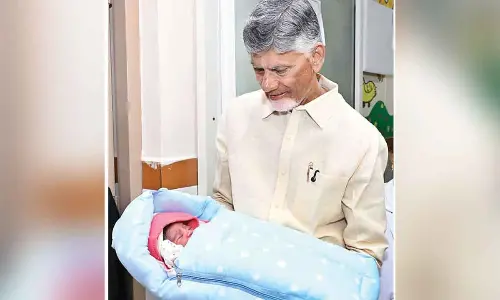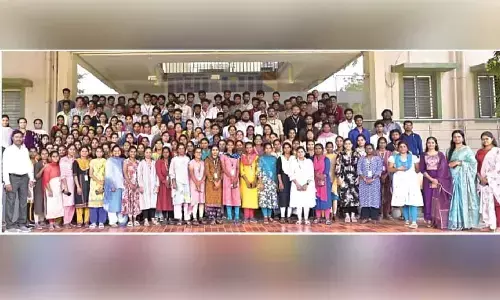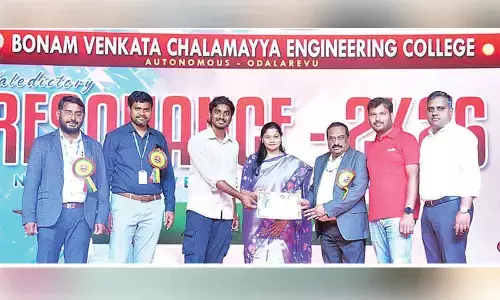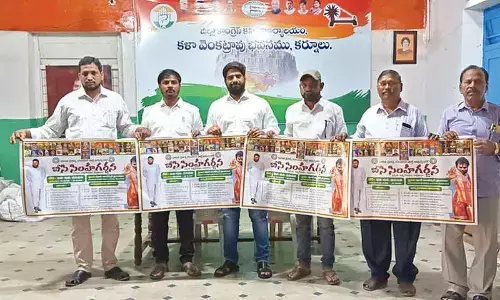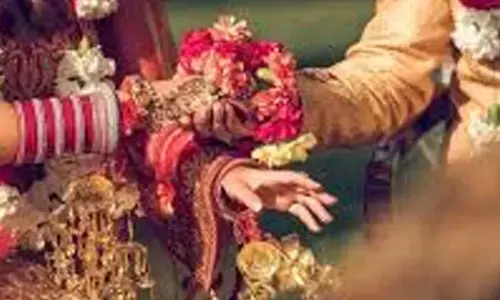Intuition often helps us do right
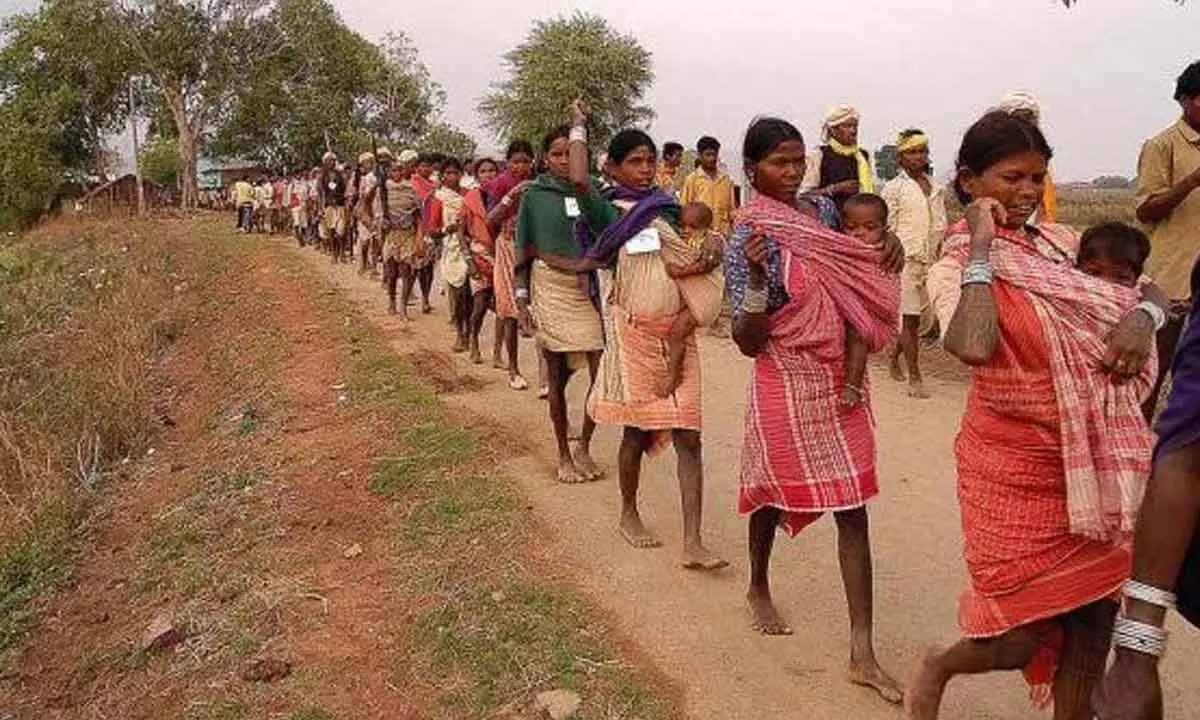
Amidst worsening seasonal illness in tribal areas, we had visiting teams from Director of Public Health, Government of Andhra Pradesh, and from Pune Institute. At this juncture, Dr Phanish Babu told me I should shoulder responsibility of deciding the treatment protocol. All visiting teams believed a virus was causing the disease. He asserted the disease was ‘Meningo-cocal-Meningitis’ and was caused by bacteria. Rifampicin would give best results. He said if I were to hold this brief strongly, in a few days he promised complete recovery. I found so much sincerity in his conduct. Due to the success in his treatment that lasted for a few days, more and more children were admitted when they showed early symptoms
Insufficient nutrition is the bane among STs in leaving them with low immunity against seasonal diseases. Their vulnerability to infections is, therefore, very high. ITDA to provide medical care at tribal doorsteps brought in the programme of mobile medical units which function at weekly shandy sites. Shandy at Duggeru in Makkuva mandal or shandy at Mondemkhallu in GL Puram or Thonam in Salur mandal are few such meeting and interacting points. Barter trading was still happening at these shandies where hundreds of tribals visit with what they have as surplus. So meagre yields from ‘podu’ are sold for other goods like clothes and consumables. Even Girijan cooperative corporation has become active in procuring minor forest produce like tamarind, gum- karaya and cleaning nuts.
Regular visits by public health personnel were not guaranteed; so, mobile medical units bridged all these gaps in the tribal areas. There was Area hospital at Parvathipuram becoming nodal centre for medical care. There were occasional cases where from that hospital cases were referred to King George Hospital (KGH) at Visakhapatnam.
In all such cases, if it was brought to my knowledge, financial support was extended to the tribal family. I was sometimes able to go and visit such patients at KGH. On one such visit, I came across a case where there was a surgery proposed to an adult to tackle Goitre. When I visited the ward, I noticed the family members were in a crest-fallen mood. On enquiry I learnt that the blood bank in the hospital did not have stock to spare for the tribal’s surgery. So surgery was getting postponed. I was willing to donate my blood. The blood bank wanted two units of blood from two different donors. I immediately called my good friend in Vizag, Manohar Prasad, IAS (retd) and we both willingly donated required two units. Later, that adult returned with good health to his village.
During 1989, there was a serious bout of a fever in the tribal areas. Tribal children fell prey to this disease. Fortunately, at that time I was holding district charge as collector, too. Dr Janardhana Rao, the DM&HO, mobilised a number of additional personnel and put them on duty in Parvathipuram agency. There was a steady increase in these cases affecting young children in several villages.
It was a challenge to tackle knee-jerk response of our Ashram school staff of sending the children home when they reported sick. So, my DTWO became vigilant and ensured that these children were sent from school promptly to community health centre Bhadragiri or Kuruppam. Whoever was admitted to hospital care showed good recovery. But those who were sent to native villages or were ordinarily staying in villages collapsed. One evening we were told that there were good number of fever cases in Babbidi village. I immediately moved up the mountain path and I saw DTWO Chinna Veerabhadrudu was already there. We both persuaded tribals to admit their children in Kuruppam CHC.
The plight of tribal mothers was very moving. On one side, they did not want to disobey the advice of PO ITDA (myself) and on the other, they were fearing the imminent death of their dear ones, and were, therefore, feeding them their last meal. There was a tribal sentiment of burying loved ones in village limits after their death. The soul of departed ones was seen as a protection from evil spirits by tribals. Similarly, there was a sentiment of not entering their village limits with a corpse even of their near and dear. Now this was a major predicament for all tribals with these fever cases that may be fatal to many of their children. Tribals did not want to lose the support of kind spirit if the children would fall to this fever. After sending nearly 10 children to Kuruppam, both DTWO and myself stayed in the village for the night to instill confidence in all the elders.
Dr Phanish Babu was the MM unit officer of Gorada. He came to me soon and sought a confidential discussion. He set highest standards of public service and I interacted with him before. This time he was discussing about the worsening seasonal illness that was becoming a challenge to the medical and health department. By now we had visiting teams from Director of Public Health, Government of Andhra Pradesh and from Pune Institute.
At this juncture, Dr Phanish Babu revealed to me some unbelievable facts of that deadly seasonal disease. He was humble to tell me that I should shoulder responsibility of deciding the treatment protocol. It was a strange proposition. He then revealed his reasoning. He said that all the visiting teams believe that there was a virus that was causing the disease. He felt that assertion was completely wrong and termed the disease as ‘Meningo-cocal-Meningitis.’ He said that it was caused by bacteria and said the administration of Rifampicin was giving best results. He said that if I were to hold this brief strongly, in a few days he promised complete recovery. True to his plot, I played that role as I found so much sincerity in his conduct. Due to the success in his treatment that lasted for a few days, more and more children were admitted when they showed early symptoms.
The agency recovered completely and in some measure, ITDA succeeded in taking modern medicine to acceptable level in tribal habitat. I was so lucky to have a sense to believe in the advice of a sincere MBBS functionary and walk out of a major health challenge unscathed, saving precious tribal children. Kudos to Dr Phanish Babu and his family.


